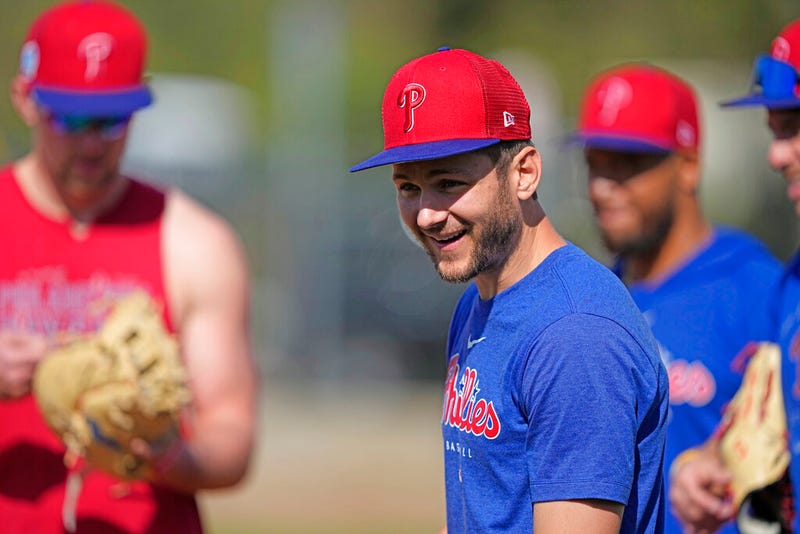
PHILADELPHIA (KYW Newsradio) — Major League Baseball has a significant new rule this season. Teams are getting their first taste of a new pitch timer in spring training. The hope behind the change is that it will speed things up by time-limiting parts of the game fans find particularly tedious.
Fans tired of slow, neverending baseball games may like this pitch clock, which evidently has worked well in the minor leagues. Pitchers and batters are now kept to strict time limits — a matter of seconds — to be ready for the next pitch or they're going to get penalized.
Countdown clocks are positioned behind the plate and beyond the outfield, where pitchers and hitters can easily see them. They'll count down from 30 seconds between batters. Between pitches, it will be 15 seconds with nobody on and 20 if there's a baserunner.
The pitcher must start his delivery before the clock expires. And the batter needs to be in the box and alert to the pitcher with at least eight seconds on the clock.
When a pitcher fails to throw a pitch in time, the penalty is an automatic ball. When a batter isn't ready in time, it's an automatic strike.
Twitter poll
After a pitch, the clock starts again when the pitcher has the ball back, the catcher and batter are in the circle around home plate, and play is otherwise ready to resume.
“It's like a game within a game within a game kind of thing,” said Philadelphia Phillies reliever Andrew Gulati on NBC Sports Philadelphia on Sunday.
Of all of MLB's tweaks under Commissioner Rob Manfred, the pitch clock might be the one that affects the most players.
“There's an adjustment period for everybody,” said Phillies broadcaster Larry Anderson on 94 WIP SportsRadio. “The minor league guys coming up, it's second nature to them now already, but guys that have been here and haven't been in the minor leagues experience before, it's gonna be an adjustment for a while.”
Phillies center fielder Brandon Marsh was asked on NBC Sports Philadelphia over the weekend if he thinks the new rules will affect hitters or pitchers more.
“I think it's gonna affect the pitchers and catchers the most, to be honest,” he said, because there will be fewer shakes and fewer pick-offs.
“But, you know, we're gonna adapt and … try to have some fun.”
Grayson Rodriguez, a 23-year-old right-hander who will probably make his debut for the Baltimore Orioles pretty soon, has plenty of experience with the pitch clock from when it was tested in the minors.
"I was a big fan of it," he said. "Obviously, it speeds up the game. As a pitcher, it's kind of what you want. Big league hitters take a long time to get to the plate. That drives me crazy, so this pitch clock kind of expediting the process — I like it a lot."
According to MLB, the pitch timer reduced nine-inning games by a whopping 25 minutes last year in the minors, from 3 hours, 3 minutes in 2021 to 2:38. And other stats like runs per game, batting average and the rate of hit batters were essentially unchanged.
"The games were shortened, but not at the expense of game play," said Joe Martinez, a former big league pitcher who is now MLB's vice president for on-field strategy. "What was really removed from the game was that dead time — pitchers walking around the mound, batters fixing their batting gloves, taking extra pitches in the bullpen, walking in from there."
Saturday's Phil's game against the Yankees went 2 hours, 34 minutes. Sunday, against the twins: 3 hours, 6 minutes. Without the clock it would have been much longer.


